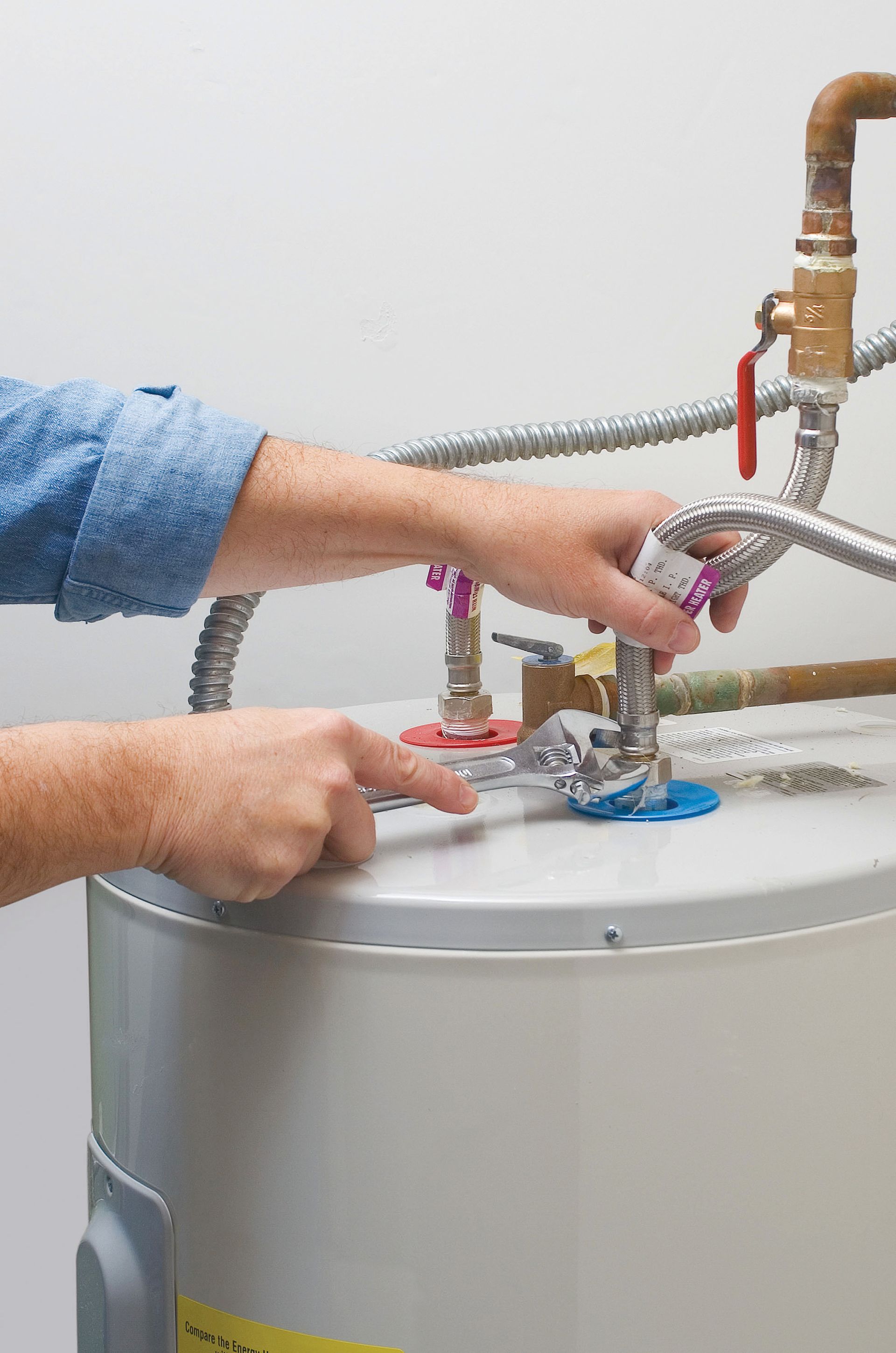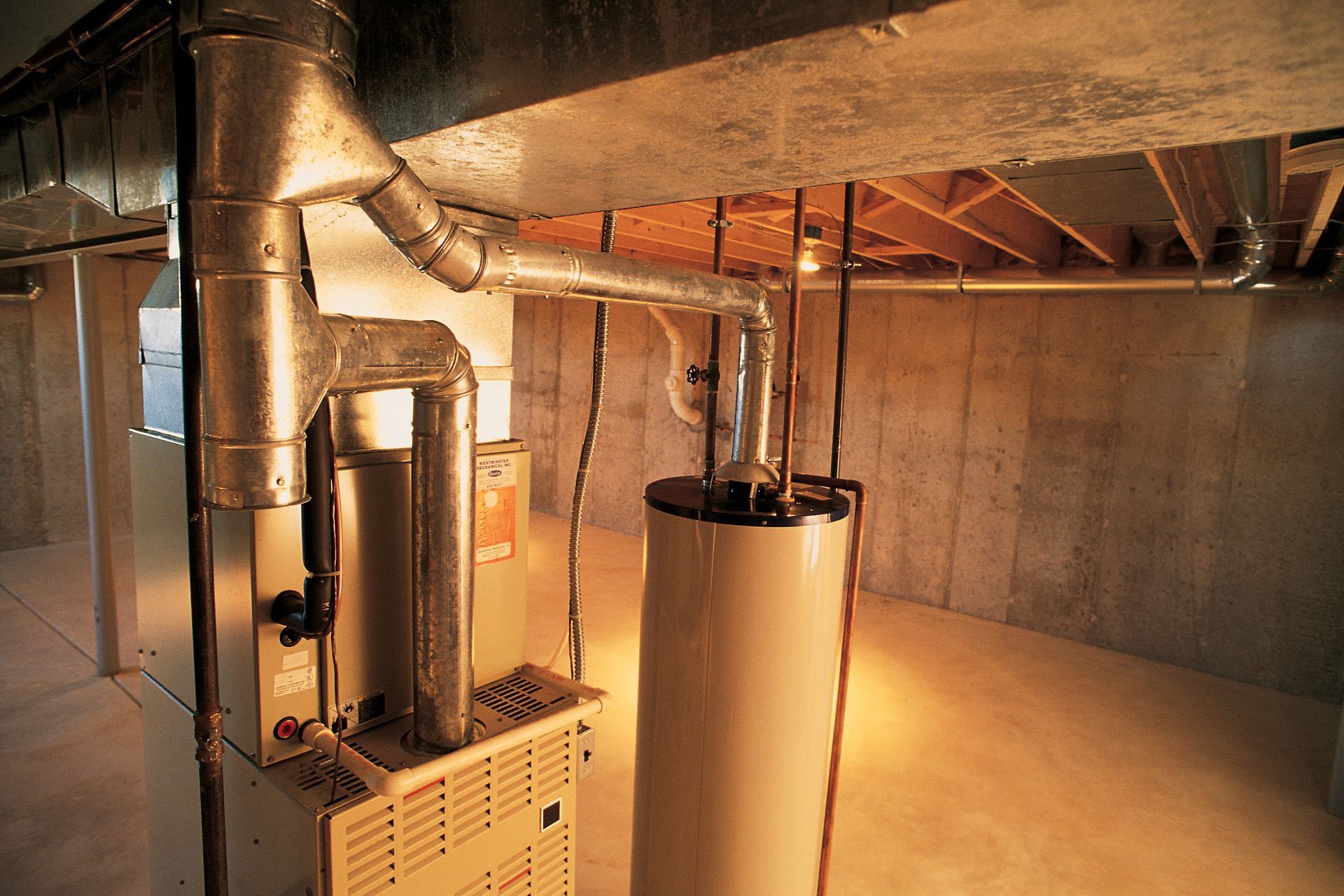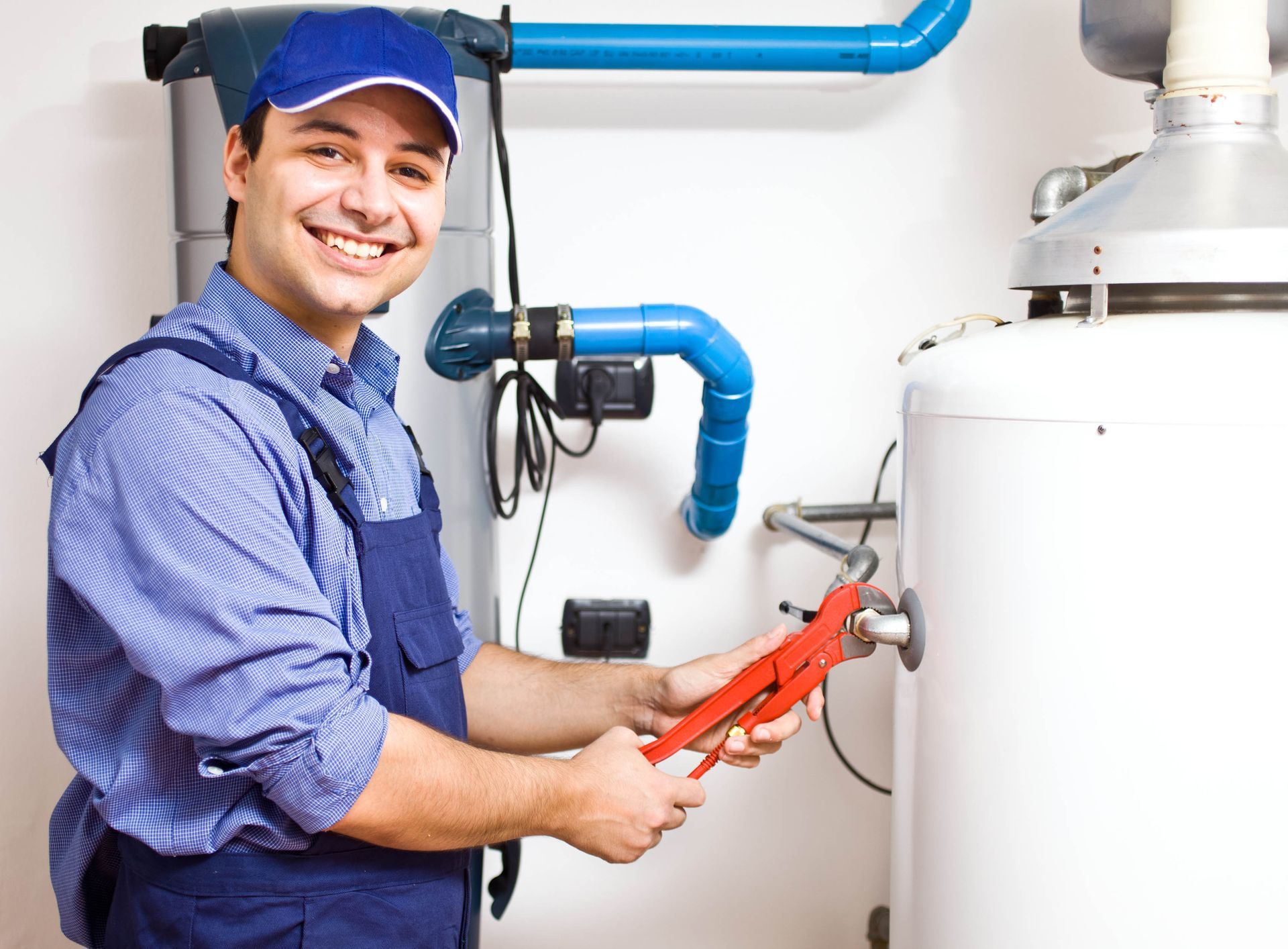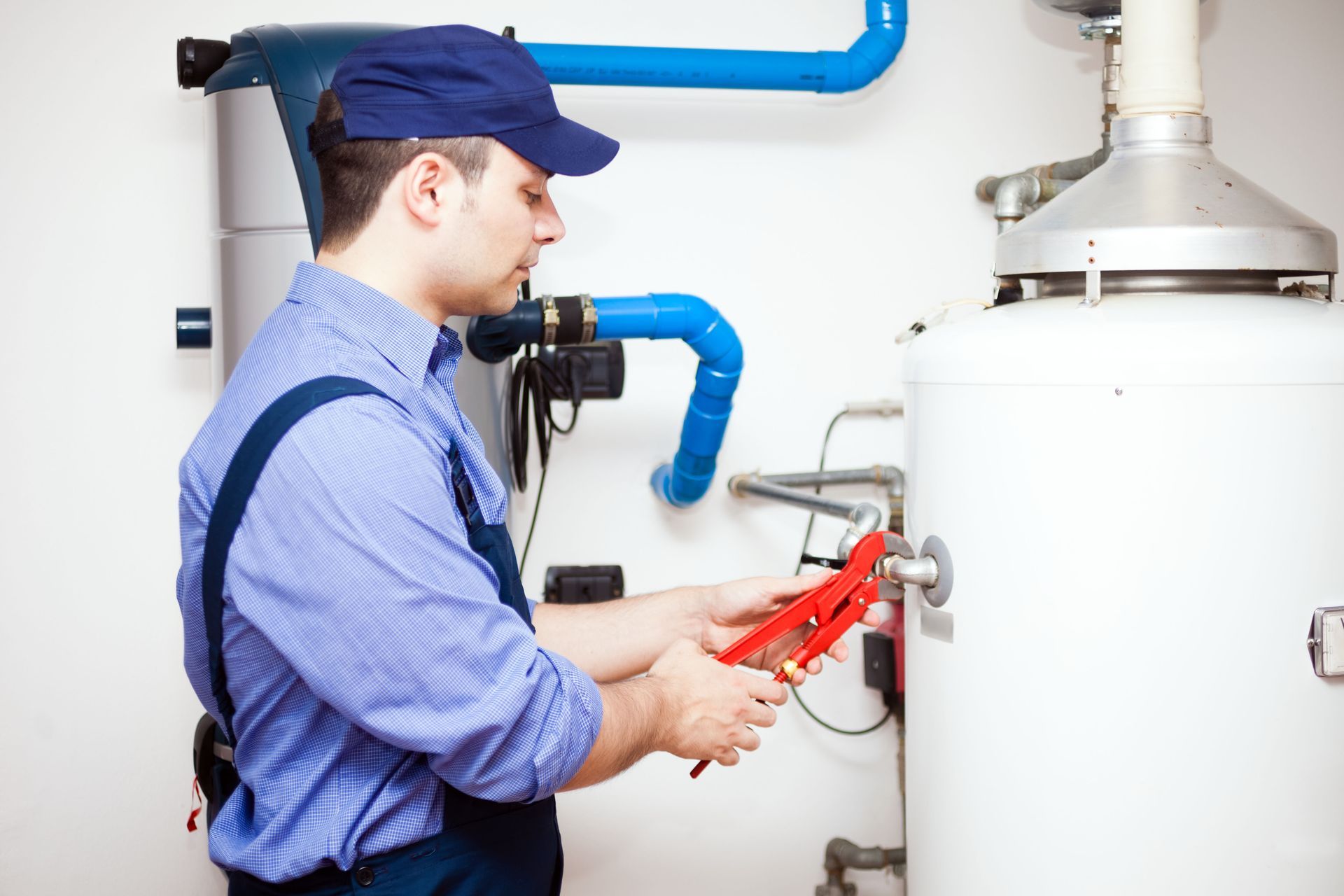By Nicole Buchanan | July 18, 2025
July 18, 2025
Your water heater plays a crucial role in your home, providing hot water for bathing, cooking, and cleaning. But like any appliance, it has a limited lifespan. Knowing the warning signs of a failing water heater can help prevent unexpected breakdowns. This guide will explore key indicators that you may need water heater repair services, ensuring you stay ahead of any potential issues.
Strange Noises
Rumbling and Popping Sounds
Rumbling and popping sounds are common indicators that sediment has accumulated at the bottom of your water heater. As water heats up, the trapped sediment creates air pockets, causing these unsettling noises. Over time, this build-up can reduce the efficiency of your unit, leading to increased energy costs and potential damage.
Sizzling or Hissing Noises
Sizzling or hissing noises in your water heater could indicate a number of problems, including leaks. These sounds often accompany water escaping from the system, potentially causing damage to the surrounding areas in your home. It's crucial to inspect connecting pipes and fittings for leaks when you hear such sounds. Addressing minor leaks immediately can prevent further complications. However, widespread or recurring leaks may necessitate replacing the water heater altogether, not just a water heater repair.
Knocking and Banging
Knocking or banging noises are often the result of water hammer, which occurs when water suddenly stops or changes direction. This can put undue stress on the plumbing and the water heater itself. Installing water hammer arrestors or cushioning devices can minimize these noises and protect your system. However, if the issue persists, it might indicate internal damage or structural issues within the heater. Consulting with a professional to assess the situation is advisable, as these noises could lead to further complications.
Age of the Water Heater
Typical Lifespan Expectations
The lifespan of a water heater is a significant factor in determining when it should be replaced. According to Lowe's, the average life expectancy of a water heater is about eight to 12 years. Factors such as water quality, maintenance frequency, and usage habits can influence this timeline. Regular inspections and maintenance can extend the life of your water heater, but eventually, aging parts will fail, necessitating replacement. Keeping records of your unit's operational history can help you determine when it's time for a new one.
Date of Manufacture
Determining the date of manufacture for your water heater is crucial in evaluating its age. Most units have a label that details the serial number and manufacturing date. This information allows homeowners to calculate how long the heater has been in operation. Knowing this date can also help when dealing with warranty claims or planning future replacements. If the heater is approaching or has surpassed the typical lifespan, it's wise to consider a newer model.
Manufacturer Recommendations
Water heater manufacturers usually provide guidelines regarding maintenance and replacement timelines. These recommendations are based on average usage patterns and industry standards. Adhering to them can maximize your unit's efficiency and lifespan, preventing premature failures. Regular check-ups as specified by the manufacturer can also uncover potential issues before they become significant problems.
Water Quality and Discoloration
Signs of Rusty Water
Cloudy or discolored water emerging from your taps is often a telltale sign of rust within your water heater. This issue not only affects the aesthetic and taste of your water but also signals internal deterioration in the tank. The rust can compromise the tank's integrity, leading to leaks or bursts if not addressed. Installing a water softener can reduce rust issues by minimizing mineral deposits. However, if rust persists, it may indicate the need to retire your current water heater.
Metallic Taste or Smell
If your water develops a metallic taste or smell, it usually points to contamination resulting from corrosion within the heater. A metallic odor or taste can detract from your drinking water experience and may raise health concerns over time. Anode rod inspections and replacements can mitigate minor metal leaching into the water supply. Should the metallic presence persist despite these measures, a thorough inspection of the system is advisable to consider replacing older equipment.
Sediment Buildup
Sediment accumulation is a key contributor to water quality issues and reduced heater efficiency. Minerals settling at the bottom of the tank create a barrier between the water and the heat source. This condition forces the unit to over-exert, increasing energy expenses and ultimately leading to internal damage. Regular tank draining and cleaning can preempt many issues related to sediment buildup. However, in cases where buildup is significant, replacement might be the more cost-effective solution.
Inconsistent Water Temperature
Fluctuating Temperatures
Water heaters experiencing fluctuations in temperature often signal underlying problems with the unit's components. Heating elements or thermostats that are faulty can lead to inconsistent hot water delivery. Regular inspections and timely replacements of worn parts can rectify temperature fluctuations. Additionally, verifying that the thermostat is appropriately adjusted reduces the likelihood of these issues. If inconsistency persists after these interventions, it may be necessary to consider a replacement unit.
Extended Wait Time for Hot Water
A prolonged delay in receiving hot water after opening a tap usually points to inefficiencies within the system. Various factors, including distance from the heater to the faucet and buildup in pipes, can influence waiting time. Insulating pipes can lessen heat loss and reduce delays. However, if long wait times begin to intrude upon daily routines, addressing potential inefficiencies through water heater repair services may improve comfort and reduce water waste.
Water Is Always Too Hot or Too Cold
When water consistently runs too hot or too cold, it can disrupt daily activities such as cooking or bathing. Adjusting the thermostat is the first step in addressing problematic temperatures. If the issue continues, it may relate to malfunctioning heating elements or sensors within the heater. Conducting regular maintenance checks can help identify such problems early. Should ongoing adjustments and water heater repair services fail to resolve the discrepancy, the issue might be significant enough to warrant replacing your heater.
Leaks and Moisture Accumulation
Visible Leakage
Visible leaks around your water heater indicate potential damage to the tank or its components. Areas susceptible to leakage include connections and fittings that have deteriorated over time. Prompt attention to small leaks can prevent more extensive water damage and promote safety. Checking for corrosion or scaling can help determine the source and severity of the leak. When leaks become frequent or severe, replacing the water heater may be the most practical long-term solution.
Puddles Around the Heater
Frequent puddling around your water heater demands immediate investigation. Pooled water signifies significant leaks that could be damaging property and wasting energy. Drying affected areas and verifying connections can often locate the source of minor leaks. If puddles persist despite temporary fixes, consider seeking professional advice. Persistent leakage issues usually suggest critical internal flaws, indicating that a new unit is necessary to prevent catastrophic failure.
Condensation or Sweating
If your water heater appears to sweat or produce condensation, there may be several contributing factors. High humidity, held in combination with cold tank surfaces, creates condensation, which can appear similar to a leak. Ventilation improvements or room dehumidifiers might address environmental causes of condensation. However, consistent sweating can also hint at inadequate insulation or an overloaded unit.
Recognizing the signs of a failing water heater can save you from unexpected cold showers and costly emergency replacements. By understanding the symptoms and taking proactive measures, you can ensure consistent hot water and energy efficiency in your home. Whether it's responding to strange noises, addressing leaks, or simply acknowledging the unit's age, timely action is the key to maintaining comfort and safety. Are you in need of water heater repair services? Call Service Solutions today to get started with our services.






